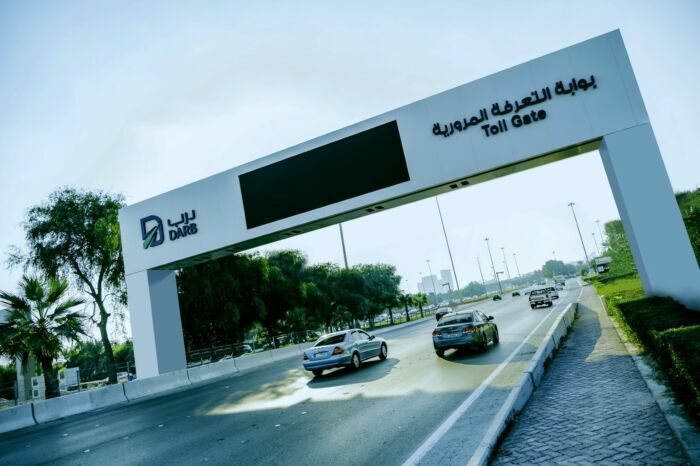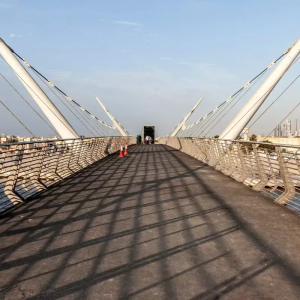Ramadan is a time of spiritual reflection and community gatherings, bringing about significant changes in daily routines, work hours, and transportation habits across the UAE. In Abu Dhabi, the Integrated Transport Centre (ITC) adjusts its Mawaqif parking system and Darb toll gate operations to accommodate the needs of residents and visitors during the holy month. Understanding these changes is essential for smooth commuting and avoiding any penalties. This article provides a comprehensive guide to Mawaqif parking timings, Darb toll gate adjustments, and public transportation schedules during Ramadan 2025.
Mawaqif Parking Timings During Ramadan
Mawaqif, Abu Dhabi’s paid parking system, enforces specific regulations to manage traffic flow and ensure accessibility. Unlike regular months, Ramadan brings a shift in the daily schedules of residents, prompting the need for revised parking hours.
Standard Mawaqif Parking Hours in Abu Dhabi
Before diving into the Ramadan-specific adjustments, here’s a quick recap of the standard Mawaqif parking hours in Abu Dhabi:

- Monday to Saturday: 8:00 AM to midnight
- Sunday: Free parking (except for premium parking zones)
Revised Parking Schedule for Ramadan
During Ramadan, the Mawaqif paid parking system operates as follows:
- Morning Paid Parking: 8:00 AM to 6:00 PM
- Evening Paid Parking: 8:00 PM to midnight
- Free Parking Break: 6:00 PM to 8:00 PM (to accommodate Iftar hours)
- Sunday: Free parking (as per usual regulations)
These adjustments allow residents and visitors to park freely during Iftar, enabling them to attend prayers and break their fast without worrying about parking fees.

Darb Toll Gate Timings During Ramadan
In addition to parking regulations, the Darb toll gate system in Abu Dhabi modifies its operational hours to align with Ramadan schedules. The toll system, which typically charges motorists during peak hours, undergoes slight changes during the holy month.
Regular Darb Toll Gate Timings
Under normal circumstances, the Darb toll gate charges drivers during peak traffic hours to reduce congestion. These standard timings are:
- Morning Peak Hours: 7:00 AM – 9:00 AM
- Evening Peak Hours: 5:00 PM – 7:00 PM
- Toll-Free Hours: Outside of these peak periods and all day on Sundays
Ramadan Darb Toll Timings
During Ramadan, the toll gate timings are adjusted as follows:
- Morning Peak Hours: 8:00 AM – 10:00 AM
- Afternoon Peak Hours: 2:00 PM – 4:00 PM
- Toll-Free Hours: All other times and Sundays
The shift in peak hours accommodates the adjusted work schedules and meal times observed during Ramadan. By moving the evening toll peak to the afternoon, the authorities aim to ease congestion during Iftar and Tarawih prayer hours.
Public Transport Schedules During Ramadan
To cater to the commuting needs of residents and visitors during Ramadan, public transportation services, including buses and taxis, operate on revised schedules.
Bus Service Timings During Ramadan
Public bus services in Abu Dhabi undergo adjustments to better serve commuters. The changes are as follows:
- Weekdays (Monday – Friday): 6:00 AM – 11:00 PM
- Weekends (Saturday – Sunday): 6:00 AM – 1:00 AM
These extended weekend hours are designed to accommodate the increased movement of people visiting mosques, restaurants, and shopping centers during the evenings in Ramadan.
Taxi Services During Ramadan
Taxis remain available 24/7; however, demand for rides significantly increases around Iftar time (6:30 PM – 7:30 PM) and post-Tarawih prayers (9:00 PM – 11:00 PM). Travelers are advised to book taxis in advance during these peak hours.
Key Tips for Parking and Commuting During Ramadan
Navigating through Abu Dhabi’s transportation system during Ramadan can be smoother with a few helpful tips:
- Plan Your Parking: If you’re heading out for Iftar or prayers, try to park in free zones before 6:00 PM to avoid last-minute hassles.
- Use Digital Payments: The Mawaqif mobile app allows for hassle-free parking payments, avoiding the need for paper tickets.
- Consider Alternative Transport: Metro, buses, and ride-sharing services can help avoid the stress of finding parking spots during peak hours.
- Avoid Peak Hours: Try to plan your commutes outside of peak hours (8:00 AM – 10:00 AM and 2:00 PM – 4:00 PM) to save on toll charges.
- Book Taxis in Advance: Taxi demand surges around Iftar and Tarawih prayers, so scheduling your ride early can help avoid long waits.
- Stay Updated on Announcements: Follow ITC Abu Dhabi for any last-minute updates on parking and transportation regulations.
Frequently Asked Questions (FAQs)
1. Is Mawaqif parking free during Ramadan?
No, Mawaqif parking is not completely free during Ramadan, but there is a break from 6:00 PM to 8:00 PM, allowing people to park for free during Iftar.
2. Are toll gates active throughout Ramadan?
Yes, toll gates remain active, but the peak hours shift to accommodate Ramadan schedules (8:00 AM – 10:00 AM and 2:00 PM – 4:00 PM).
3. Do public buses operate late at night during Ramadan?
Yes, public buses operate extended hours on weekends, running until 1:00 AM to cater to those attending late-night prayers and gatherings.
4. Are there any exemptions for parking fees during Ramadan?
No official exemptions exist, but the free parking break from 6:00 PM to 8:00 PM provides a window of relief for residents and visitors.
5. How can I check for parking availability?
The Mawaqif mobile app and ITC’s official website provide real-time parking updates and availability.
Conclusion
The holy month of Ramadan brings changes to daily life in Abu Dhabi, and understanding the adjustments to Mawaqif parking timings, Darb toll gates, and public transport schedules can help residents navigate the city efficiently. Whether you’re driving, using public transport, or booking a taxi, planning ahead and being aware of the revised timings can make your commuting experience more convenient.
Stay informed by checking official updates from the Integrated Transport Centre (ITC) and enjoy a smooth and hassle-free Ramadan in Abu Dhabi.
Do follow Uae stories for more Updates
Understanding the National Debt of Dubai: Economic Implications and Future Outlook












